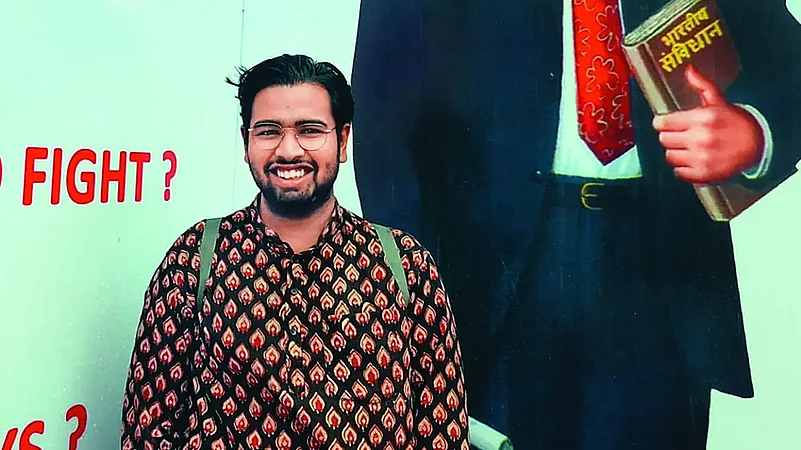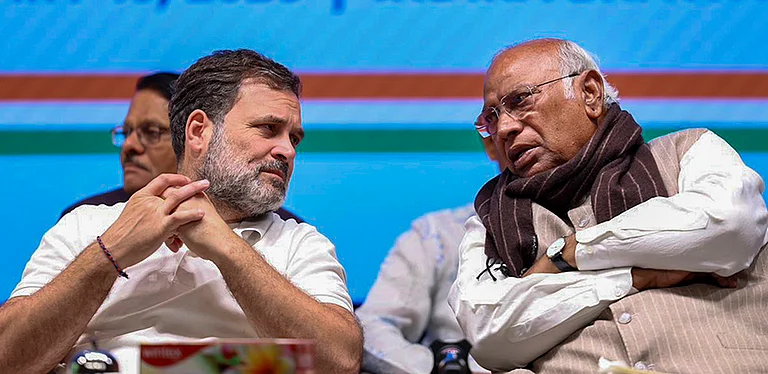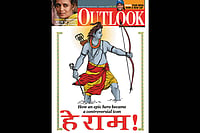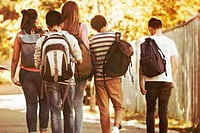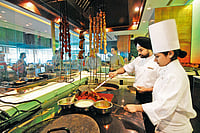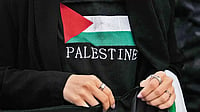Education, Babasaheb Ambedkar said, is the milk of a tigress, and thereafter generations of our communities invested all their potential to seek education for their empowerment. For my family, this struggle started with my grandparents who worked hard for my parent’s education.
It was abruptly halted when my parents had to prioritise employment for dignified living over pursuing higher education.
I joined the University of Hyderabad (UoH) for my Master’s in History in July 2019. As a first-generation student in higher education, I knew about the varsity through the Rohith (Vemula) movement.
Eminence and aspirations accompany deterrence for the marginalised. Soon after my admission process was over, I was informed that the portal facilitating hostel accommodation had been temporarily closed. There was no certainty of getting hostel accommodation until vacant hostel rooms were made officially available. For me to afford to pursue my course here, it was critical to get a hostel room.
Hostels have played a very significant role in creating an educated class among marginalized groups. In July 1924, Babasaheb established the Bahishkrit Hitakarini Sabha to promote education among depressed classes. Establishing such hostels for students was one of the prime aims of the Sabha, which opened two such hostels for students from depressed classes.
It was the denial of access to hostel rooms that gave rise to the Velivada by Rohith anna and four other students who were socially boycotted along with him in 2016 by the Appa Rao-led varsity administration.
It became an everyday routine for me to visit the chief warden’s office to request hostel accommodation. My means of resistance; sitting outside the office to seek accommodation, barely dented the apathy of the Warden office. It was only after a month’s humiliation that I approached Ambedkar Students’ Association (ASA) for help, that a hostel room was allotted to me overnight. Both of my parents are primary school teachers, who raised me in Ambedkarite thought.
The contempt towards working in an anti-caste organisation was quite known to me. Through narratives in liberal circles, I came to believe in the casteist speculation about the ASA as an organization that was infamously hyper-masculine and gender insensitive. I chose to dissociate myself from any close affiliation with ASA. I believed that disassociating would help me navigate any such experiences of discrimination. However, the interactions of faculty members and students fraternity continued to be casted (entrenched in caste). Performances of my caste-Hindu classmates, whether good or bad, benefitted from guidance by faculty members. Whereas vis a vis us, they used sweeping remarks calling our answers ‘objective’ and our language as non-academic. Our questions in the classroom were met with a contemptuous silence or remarks like “You don’t get what I am talking about’’ or “You need to read more”.
75 years of Independence have not erased our experiences of discrimination within university spaces. By accessing our right to education, we are making our way to higher education. But does mere physical freedom to enter these university spaces ensure us the freedom from the discrimination and gate-keeping in higher education? Have these experiences allowed us to access education to develop our human capacity, to exist as free humans? Few months before I joined the varsity, the Velivada raised by five Dalit scholars who were denied access, was demolished by the University administration in the middle of the night.
While Velivadas in villages across nation still signify the ghettoisation of Dalits, what would have been the intention of the administration behind dismantling the Velivada in the UoH? It was an attempt to erase the history of resistance, whose reminiscence would keep challenging the practice of discrimination. Higher education that remains monopolised by the caste-Hindus, will always make university spaces sustain such discriminatory practices.
Under such circumstances, ASA, like many other young Ambedkarite student organisations, became a space for counter culture, where such humiliation is channelised to build the potential of students coming from marginalised caste backgrounds. Addressing public gatherings rebuilt the confidence that was lost in the classrooms.
ASA’s participation in student elections, small victories in persuading the administration to fill all the reserved seats, check on malpractices where students from marginalised communities were marked indifferently in the interviews, due disbursement of scholarships, building pressure around incidents of harassment by the supervisor are a result of the invisible work that Ambedkarite student organisations have done for generations. In a way, these organisations have offered more towards realisation of equitable societies than claims made university texts and handbooks.
All spaces are patterned hierarchically. The ASA’s was no exception. Negotiations with the administration, decision-making, access to organisational capital are determined by these hierarchies.
The abjection and marginality associated with queerness did reflect in my experiences within ASA. “The value of a man was reduced to his immediate identity and nearest possibility…….. Never was a man treated as a mind. As a glorious thing made up of star dust,” Rohith anna had warned us in his last message. An organisational space shapes individual opinions and worldviews; but organisational spaces that limit you to your immediate identity cannot treat you as a mind, as a free human. It is in ASA’s commitment to Babasaheb’s emancipatory worldview and assertive self, that I see my transformative journey against fighting discrimination and reaffirms my faith in an equitable future for all.
In the words of Wamandada Kardak, a renowned Ambedkarite poet…
Samatecha wahi wara na pilavnukila thara,
Tya nagarichya shodhasathi navya manasapathi
Tanda chalala….
Manus nava ghadavava ha lok ladha ladhvava,
Ekjuticha awaj amacha abhal ata gathi
Where the wind of equality blows (where there is) no shelter for exploitation,
To search for that city for the new human,
Caravan is moving….
To create a new human (this) human combat be fought,
Our united voice has now reached the sky.
(This appeared in the print edition as "The Caravan is Moving")
Liked the story? Do you or your friends have a similar story to share about 'ordinary' Indians making a difference to the community? Write to us. If your story is as compelling, we'll feature it online. Click here to submit.






